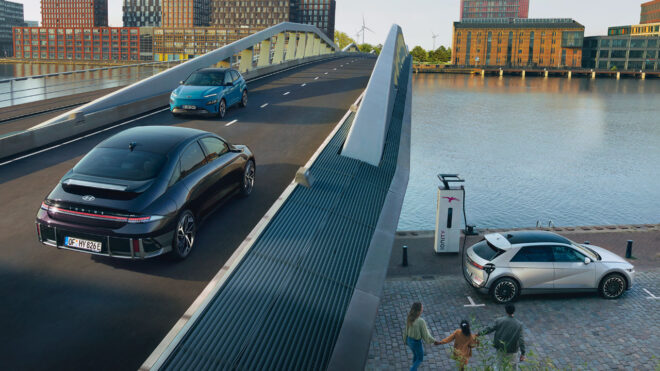one of the world’s largest automobile manufacturers hyundai, important for electric cars. battery research center It hurts.
Hyundai, like its competitors, attaches great importance to the electric car side and accelerates its investments in the field. The company’s last step in this regard is said to be jointly established with Seoul National University. battery research center it happened. The statement from the company in this regard was as follows: “Hyundai Motor Group is establishing a Joint Battery Research Center with Seoul National University (SNU). This collaboration between the group and the university aims to advance battery technologies in electric cars while simultaneously achieving Hyundai’s goal of global leadership in this area.” Speaking at the signing ceremony for the partnership Hong Lim Ryu, President of Seoul National University said: “The Joint Battery Research Center will be a new starting point for Hyundai Motor Group’s advanced battery technology. It will be effective in all processes from the development of batteries to laying the foundations of various innovations by creating a joint synergy with the competent researchers of our faculty and graduate students of Hyundai Motor Group.” Euisun Chung, Chairman of the Board of Hyundai Motor Group whereas, “Our mission of mobility solutions equipped with advanced batteries is part of our goals towards a sustainable environment for future generations. With our joint research and development investments, we aim to play an important role in the mobility industry’s transition to electrification.” said.
YOU MAY BE INTERESTED
The following was also conveyed about the battery research center: “The Battery Research Center was launched in November 2021 with the joint agreement of the Group and Seoul National University. Agreeing to achieve carbon neutrality and create a battery research ecosystem, the partners will begin their work within Seoul National University’s expanded Institute for Chemical Processes. A special area will be created only for battery development in the center, which covers a total area of 901 m2. 7 laboratories and 1 conference room will be opened for battery development, analysis, measurement and all these processes. While establishing such a facility for electric cars for the first time at the university, experienced engineers and expert opinion leaders will be brought to the automotive industry at the same time. A total of 22 collaborative research projects will be carried out at the center in 4 divisions specifically, including lithium metal batteries, solid state batteries, battery management systems (BMS) and battery processing technology.
21 distinguished professors from Korean universities and special talents at the master’s and doctoral levels will participate in the research. Of the 22 planned research projects, 14 will be related to lithium metal and solid-state batteries, with a major focus on developing next-generation batteries. Hyundai Motor Group will invest over KRW 30 billion (USD 23 million) by 2030. This investment budget will be spent on establishing the center and purchasing experimental equipment. In addition, Hyundai Motor Group aims to produce 3.64 million EVs by 2030, while these solid batteries developed by the center will be used in new generation electric cars. In addition to all this, another goal of Hyundai will be to reduce the cost of batteries to increase the affordability and practicality of electric cars. Thus, a decrease of 75 percent in 2026 and 45 percent in 2030 is targeted. Starting from 2025, Hyundai will also apply lithium ferrophosphate (LFP) batteries, developed jointly with battery companies, to new generation electric vehicles for the first time.”
